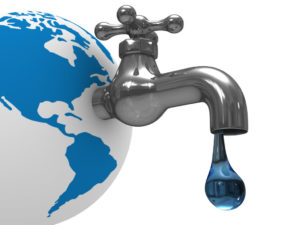Drinking Water Testing Maryland
When you need public drinking water testing in Maryland, consider Suburban Testing Labs. We have 57 years of experience in environmental testing for microbiological, inorganic and organic contaminants, metals, and radiologicals.
Suburban Testing Labs is a nationally recognized independent environmental testing laboratory that specializes in analysis of water, wastewater, soil, and solid materials.

Since 1963, we have become trusted experts in drinking water analysis for industries that test potable water, non-potable water, and soil/solid materials to protect public health and preserve the environment, including environmental consultants and engineers; drinking water suppliers; wastewater treatment plants and operators; water treatment companies; brownfields, site remediation, and development professionals; and Environmental Laboratories that may not have the necessary capabilities to meet their customers’ needs.
Accredited in accordance with NELAC (National Environmental Laboratory Accreditation Conference), we are committed to providing defensible data at a competitive price with first-class customer service.
Common Drinking Water Contaminants
Congress enacted the Safe Drinking Water Act (SDWA) so that all persons served by public water systems would have safe drinking water. The Act gave the EPA the authority to set national standards for contaminants that are harmful to public health and required public water systems to monitor for these contaminants.
Water testing is at the heart of the efforts to ensure safe drinking water. The best water testing labs can conduct a full analysis of your water to determine its contents, but there are a few contaminants that seem to be detected more commonly than others.
Nitrates
Although low levels of nitrates may occur naturally in water supplies, higher concentrations can also be found. It can be difficult to pinpoint sources of nitrates because there are so many possibilities, so it is highly recommended to test your drinking water supply on a regular basis.
Sources of nitrates may include runoff or seepage from fertilized agricultural lands. The fertilizers are water soluble and run off into bodies of water before eventually making their way into water sources. They can also arise from municipal and industrial waste water, refuse dumps, animal feedlots, septic tanks and sewer systems, urban drainage and decaying plant debris.
High levels of nitrates in drinking water can be dangerous for infants under six months of age who are bottle fed because they may cause methemologlobinemia, a condition known as “blue baby syndrome,” which results in low blood oxygen levels and can be fatal in some instances.
Arsenic
Although not as prevalent in the environment as nitrates, arsenic is a naturally occurring metallic substance that can be dangerous when consumed through the drinking water supply.
It can enter the groundwater supply through either a natural mineral deposit that leaches arsenic from the minerals into the water, or as a result of industrial runoff and contamination from industries that make or use arsenic
In the short-term, large quantities of arsenic are fatal. Small amounts consumed in drinking water may cause digestive problems, numbness in the extremities, and skin cancer.
Metals
Metals like copper, cadmium, iron, and lead, are a part of the natural makeup of the earth’s crust and are abundant in our soil. Just because they are natural, however, does not mean they are not hazardous to human health when consumed in drinking water.
Lead, for example, has been linked to brain cancer, and although great steps have been taken to reduce the levels of lead in drinking water, it may still seep into water from older metal faucets, taps, or pipes. Copper and cadmium can result in kidney and liver damage. Even iron can cause skin and stomach problems.
Thanks to the potential for contamination in many public drinking water sources, regular testing is invaluable. Suburban Testing Labs is one of the nation’s leading environmental testing laboratories and can help you identify potential problems. Please contact us at 610-375-TEST for assistance with your environmental testing and analytical needs.
